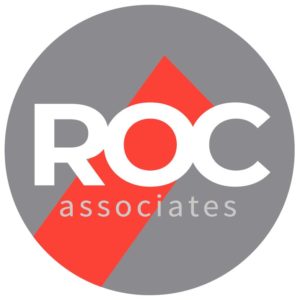Artificial Intelligence Trends for C-Stores
C-store customers expect a seamless shopping experience, with quick checkout times and personalized recommendations, so convenience store owners are constantly looking for ways to improve their operations and stay ahead of the competition in attracting customers. During this year’s NACS conference in Atlanta, Artificial Intelligence (AI) was highlighted as a transformative tool that retailers are increasingly turning to in order to differentiate themselves to customers as well to achieve greater operational efficiencies- improving the bottom line.
This area is changing rapidly for the convenience retail industry. As recently as only two years ago, there was virtually no mention of AI at NACS, while this year the topic was front and center at nearly every technology provider’s booth and many of the educational sessions. The capabilities of AI for automating tasks, improving decision-making and operational efficiencies, and personalizing the customer experience are accelerating year over year to great impact. The IHL Group estimates that the positive economic impact that AI will have on the retail industry overall is over $9 Trillion by the end of this decade.
Customer Insights and Personalization
AI can be used to gain valuable insights into customer behavior by feeding a variety of input data into AI driven systems. Transaction logs, loyalty data, inventory movement data, computer vision, audio feeds from in-store microphones, and more can all play a part in gaining deep insights into customer behavior which can then be used to further personalize the shopping experience through better product selection, pricing strategies, and marketing campaigns.
One particularly interesting example we witnessed at NACS was an AI tool that uses an audio feed from microphones placed near each register combined with transaction log data to know how successful particular cashier-driven promotional campaigns are. It can report how often promotions are suggested by cashiers and how often they are accepted or turned down by the customer. As an added bonus, there are opportunities to monetize this data with product manufacturers.
AI can be leveraged in loyalty programs to reward customers for buying their favorite products. Through tracking customer purchase history and identifying their favorite products, customers can be offered exclusive discounts and promotions – perhaps bundling them with complementary products and driving larger basket sizes. AI can also be used to identify new customer segmentation opportunities and can target these segments with relevant promotions and offers.
Computer vision AI can also be used to track customer foot traffic and identify areas of the store where customers are spending the most time which can then be used to improve the store layout and merchandising.
Operational Insights
Computer vision combined with language modeling AI is able to provide deep operational insights that can be very valuable to retailers.
Knowing how often a cashier welcomes customers upon entry, asks if they are in the loyalty program, and the frequency they upsell customers can provide insights into how well store personnel are putting into action everything they’ve been trained to do. Additionally, it can identify when customers verbally comment to cashiers that they couldn’t find a product they were looking for and can immediately generate an alert to the store manager of a possible out of stock situation that needs to be addressed.
Computer vision AI can be used to report and track the time it takes employees to perform key operational tasks such as sweeping the floor or receiving or counting stock which can provide insights into operational efficiencies being realized by certain stores but not others so that those best practices can be trained to others.
Self Checkout & Autonomous Checkout
There are a number of competitors in the market that offer solutions that leverage computer vision, sometimes augmented by shelf sensors, to be able to track customers within a store and the products they purchase all without the need for any cashier. There are also multiple technology providers who offer stand-alone self checkout terminals that leverage AI and computer vision to identify the products placed in front of the terminal and even prepared foods can be accurately added to the ticket without the need for barcodes- significantly reducing the time it takes to check out.
Loss Prevention
AI is able to be leveraged to proactively identify trends and patterns of loss and identify the likelihood that they will begin showing up at other locations in your network. It is able to identify many different types of threats including organized retail crime patterns and then recommend action plans to counteract theft such as specific cycle counts, employee awareness campaigns, etc. It can even measure the effectiveness of those recommendations in a self-learning cycle.
AI is also being used for making loss prevention research more user friendly such as being able to run natural language queries against the data. For example, a user could type or say: ”Show me all employees who issued a refund within one hour of store closing and then sum up the total units sold and refund amounts”.
The self-learning evolution of AI is able to discover new signals and indicators to predict fraud more accurately- saving employees time by directing them to better places to research. IHL Group reports that retailers that leverage AI for loss prevention have the potential to see 120% higher sales growth and 155% higher profit growth compared to retailers that do not leverage AI for loss prevention.
Conclusion
AI is a rapidly evolving powerful tool that can help convenience retailers improve their operations and stay ahead of the competition. Retailers can maximize AI’s usefulness through its ability to automate tasks, improve operational efficiency and decision-making, and personalizing the customer experience. Convenience retailers that embrace AI are well-positioned to succeed in the future.
Call us for a free one-hour evaluation where we can discuss your goals and the steps we can take to find and implement the right fit for your business.


Josh Carr
678-612-8168
